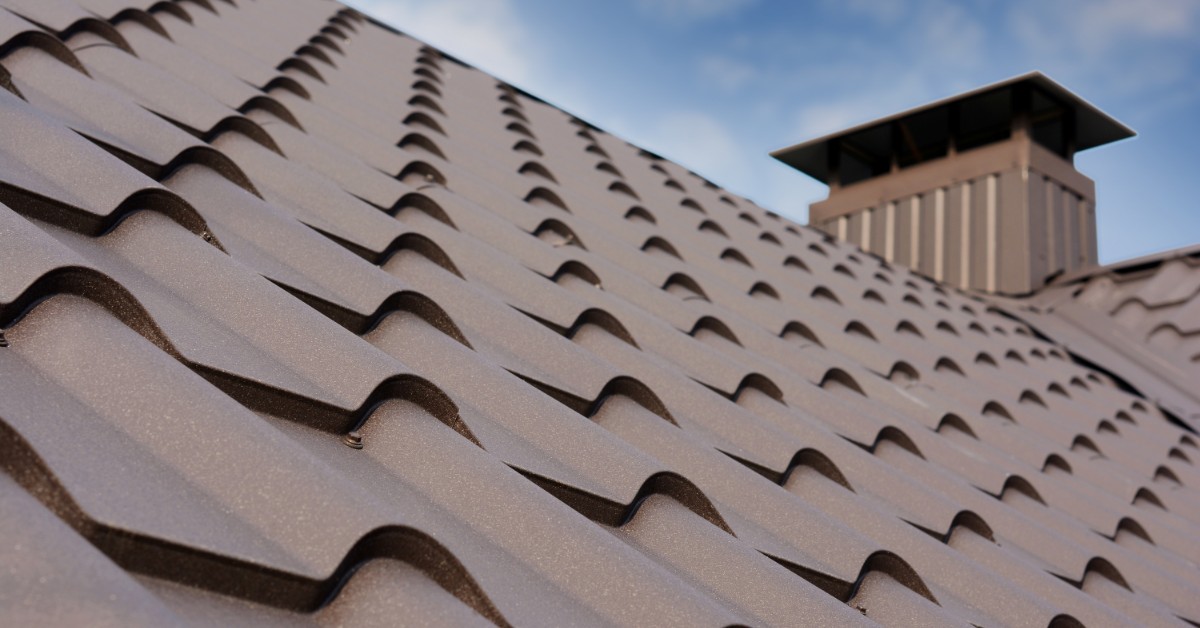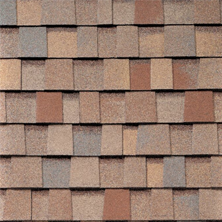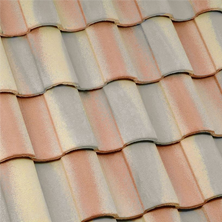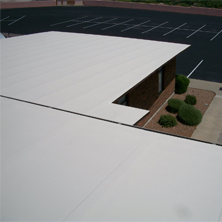
Composite Roofing 101
![]() January 27, 2020
January 27, 2020
Whether you’re a first-time buyer or a real-estate savant looking for a third home, it’s easy to get flustered by the decision about what kind of roofing to use. Although there are many options, one of the most popular materials in today’s market is composite roofing.
In this guide, we’ll review what composite shingles are, how they’re made, and the reasons why you might consider using them for your own roof. We’ll also discuss the environmental impacts of this material, how it compares to other shingle options, and the types of weather and damage it can withstand.

Composite Roofing: What Is It? How is it Made?
Composite roofing, as the name suggests, is a blend of several different synthetic materials. It is also called synthetic roofing for this reason. Composite varieties can be manufactured into traditional shingles, as well as tiles or natural-looking stone forms.
A wide range of ingredients may be used to make composite shingles, including recycled paper products, asphalt, fiberglass, laminate, wood, slate, and even tar paper. To make the shingles, two or more of these materials are mixed, combined, and compressed into a tile. The diversified makeup of composite roofing makes it a highly desirable and durable choice.
What Are The Different Types Of Composite Shingles?
There are three main types of composite shingles: 3-tab, architectural, and laminate (also called dimensional).
Three-tab shingles are made up of three layers. The center mat is a fiberglass or cellulose tab, and this is coated on either side by ceramic particles, a mineral-based buffer, and finally coated in asphalt.
Laminate composite shingles, also called dimensional composite, take the same basic structure as 3-tabs, but add an extra layer to increase the thickness and durability.
Architectural composite shingles use a central fiberglass mat, but add multiple layers of mineral fillers. These fillers, called polymers, use a synthetic and organic blend of minerals. Architectural composite shingles are unique in that they can be designed to look like a wide range of aesthetic materials. Depending on their ingredient makeup and shape, these shingles may resemble cedar wood, clay, and slate, satisfying a desired image without sacrificing durability.
What Are The Benefits Of Composite Roofing?
The primary benefits of composite or synthetic roofing are price point, lifespan, versatility, and sustainability. Because composite shingles are lighter in weight yet denser in material, they can be installed without expensive roof reinforcements. Their dense structure is heat-retentive, so it will insulate extremely well in the cold winter months.
Compared to other kinds of shingles, synthetic tiles are likely to last an additional 10-20 years. Depending on price level, some may actually be guaranteed to last a lifetime without a single replacement.
Finally, the manufacturing process of composite shingles incorporates many recycled and reused products like plastics and hemp fibers. Rather than fabricating the shingles from entirely new resources, synthetics use environmentally sustainable practices to maximize the repurposing of construction materials.
What’s The Difference Between Composite And Traditional Types Of Roofing?
Next to composite roofing, asphalt shingles are the most popular type of shingles for American homeowners. However, asphalt roofing is heavier than composite varieties, takes more work and money to install, and is not warrantied to last as long as synthetics.
When slate shingles initially hit the market, they were popular due to their light weight, ease of transport, and cheap cost. Today, synthetic shingles are surpassing slate shingles. Composite shingles weigh almost one-quarter as much as slate alternatives, and they’re generally less expensive too.
Cedar roofing is another viable alternative whose shingles are made using a compressed mixture of cedar wood shavings, post-industrial plastics, hemp and plant fibers, and used rubber tires. Although cedarwood shingles have a durable warranty averaging at around 20 years, there are many more options available when choosing composite tiles, and many last twice as long as their wooden competitors.
Is Composite Roofing Safe For The Environment?
Those who care about environmentally safe practices will be pleased to know that composite shingles are manufactured with sustainable materials and production processes. Recycled, reused, and plant-based ingredients and fibers form the basis of the shingles, showing that roofing tiles made of repurposed goods can often be more effective and durable than new but cheap products designed to break.
How Long Will Composite Roofing Last?
As mentioned briefly already, composite roofing is generally guaranteed with a much longer warranty than asphalt, slate, and many cedarwood blends. These other kinds of shingles are usually expected to last one to two decades, whereas composite shingles can be insured to perform for 30 to 50 years, if not a lifetime.
Conclusion
As this brief but informative guide demonstrates, there is no shortage of options to consider when choosing a roof. However, more and more homeowners and builders are looking to composite and synthetic shingles and tiles for their affordability, durability, low environmental impact, and aesthetic variety.
To learn more about your options for roofing, from repairs and maintenance to installs, reach out to Express Roofing. Our team of experts has been serving Maricopa County for over 20 years, including the neighborhoods of Gilbert, Chandler, Mesa, and more!

Free Roofing Estimate
Professional, great workmanship, great service and the work was completed on time. I was impressed with the drone they used to take before, during, and after videos that I was able to view from the co…
Read More
- Dennis Karp
These guys do QUALITY WORK in a PROFESSIONAL manner. You get what you pay for and it's a good thing with Express Roofing because they pack in so much value! They will over communicate job status. They…Read More
- Brian Froelich
Express Roofing LLC
1640 S Davis
Mesa, AZ 85210-9313
Business Hours
Monday - Friday
7:00am – 3:00pm








